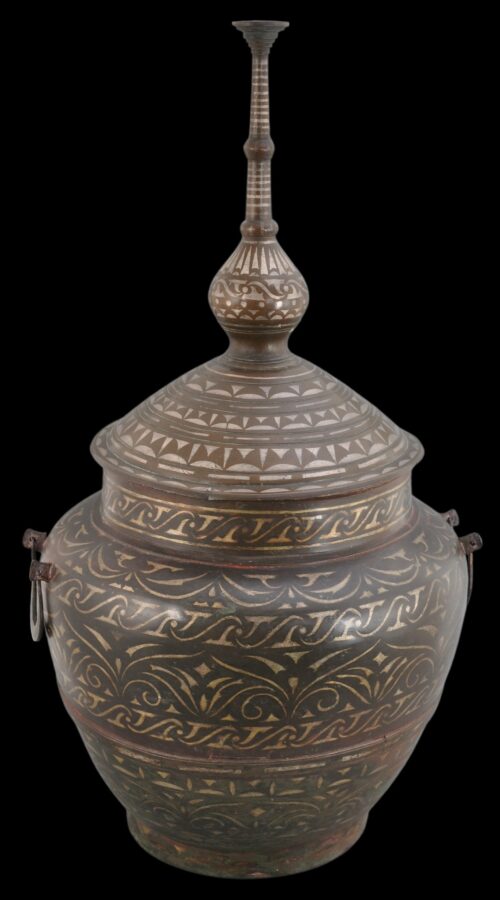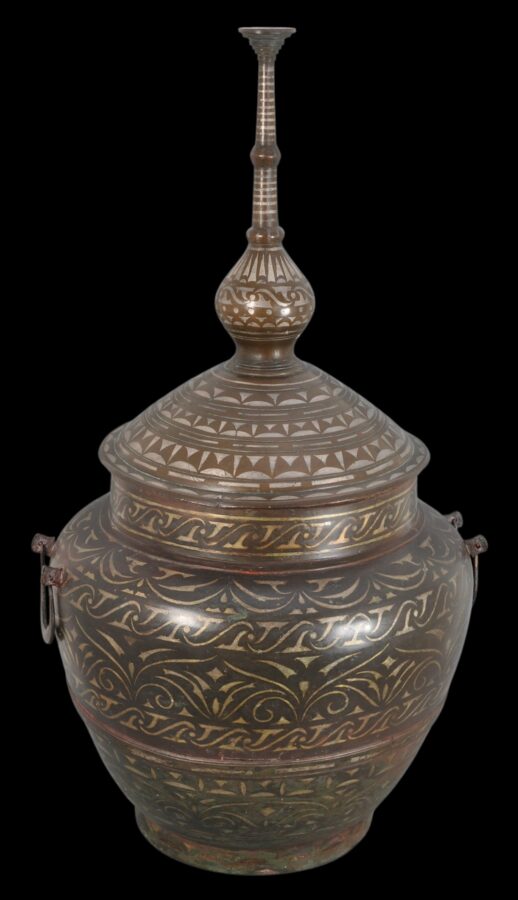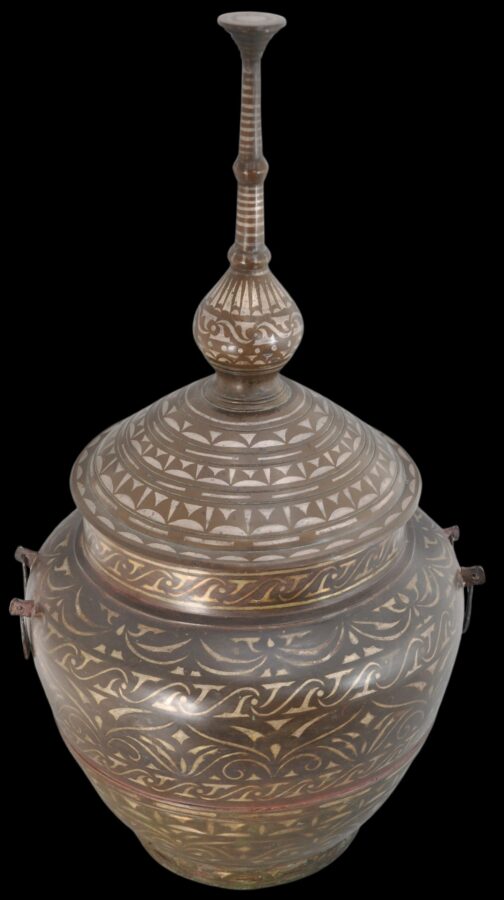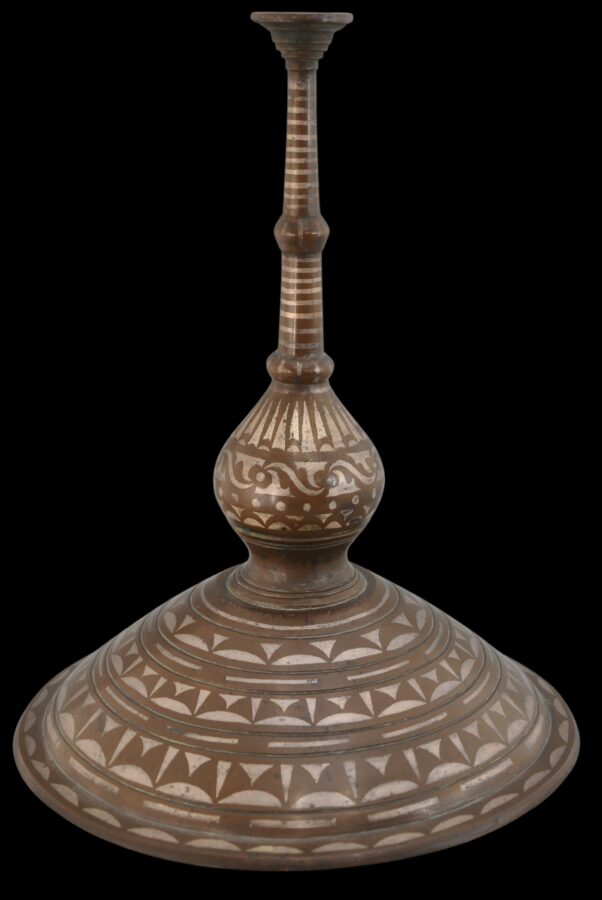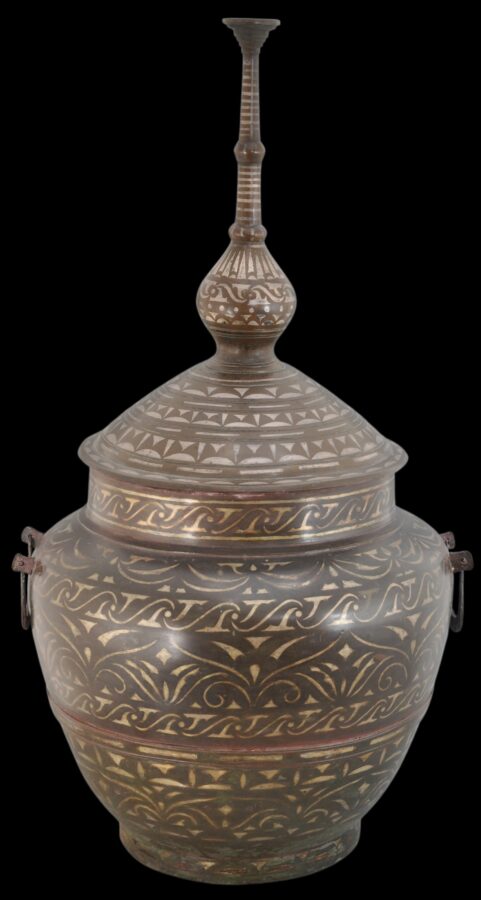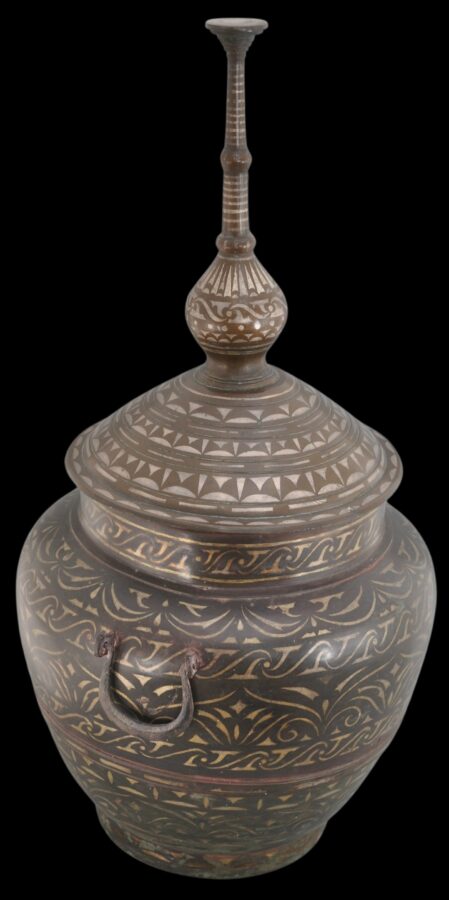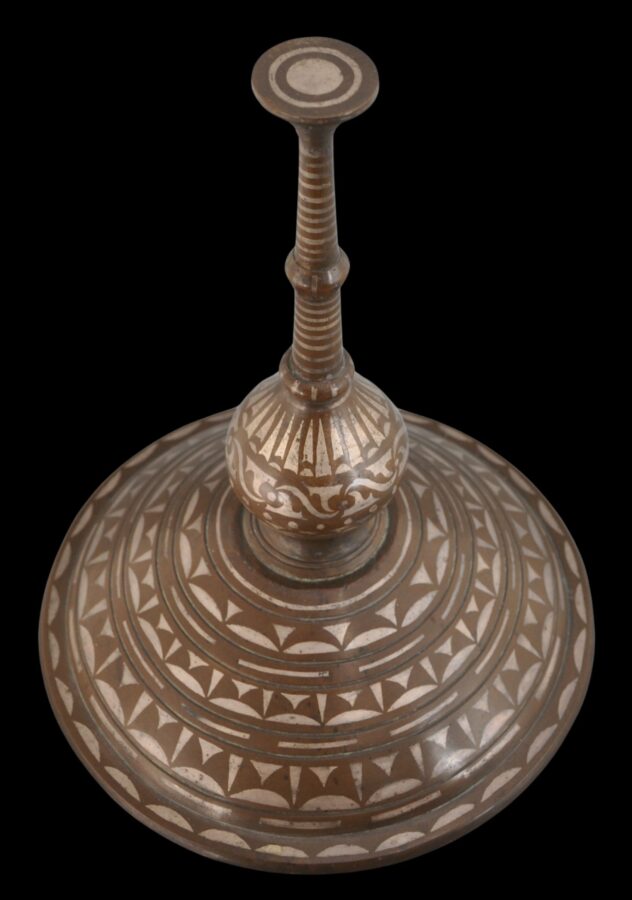Enquiry about object: 2832
Philippines Silver-Inlaid Brass Wedding Vessel (Gadur)
Moro People, Mindanao, Philippines early 20th century
height: 57.5cm, width: 29.5cm
Provenance
private collection, US.
This fine example of a gadur (also written as gador) brass jar is of cast brass inlaid with silver. It has a bulbous, rounded base that rises out from a low ring foot and rises to a thinner neck. It has a domed lid with a long, spire-like finial that is shaped like a rosewater sprinkler.
There are handles on either side. As is typical, these are weak and ornamental only; they serve no practical purpose.
Motifs in silver inlay include bands of stylised orchids (obar-obar) and rope twist (obid-obid) borders. This type of decoration has its origins in woodcarving (Fraser-Lu, 1989, p. 110). The spire finial is decorated with rings of silver inlay.
Such containers were presented as gifts among wealthy Muslim Maranao families on Mindanao island in the southern Philippines. They might also have been used to present wedding gifts such as grain and textiles by the groom’s relatives (Fraser-Lu, p. 108).
According to Casal et al (1981, p. 155), ‘When entering the house of a datu [local chief] in Lanao and Cotabato, one’s first impression is of dozens or hundreds of brass and copper artifacts…Such objects are considered indicators of wealth and status, and they are always included among the gifts exchanged during weddings. The most impressive of these brass items is the gadur…’
The association with weddings is suggested by the long spires atop each lid which are in the shape of rosewater sprinklers. Rosewater is used among the Malays and Malay-like peoples of Southeast Asia as part of their wedding rituals. During the wedding ceremony, the bride and groom are seated ‘in state’ and have rosewater sprinkled over their open palms.
See Afable et al (2013, p. 143) for a similar example but which has lost its handles.
The example here is in fine condition and without any obvious losses. It has a fine dark patina, with some crusting to the base.
References
Afable, P., et al, Philippines: an Archipelago of Exchange,ACTES SUD/ Musee du Quai Branly, 2013.
Barados, D., Land of the Morning: Treasures of the Philippines, San Francisco Craft & Folk Museum, 1995.
Casal, G. et al, The People and Art of the Philippines, UCLA Museum of Cultural History, 1981.
Fraser-Lu, S., Silverware of South-East Asia, Oxford University Press, 1989.


